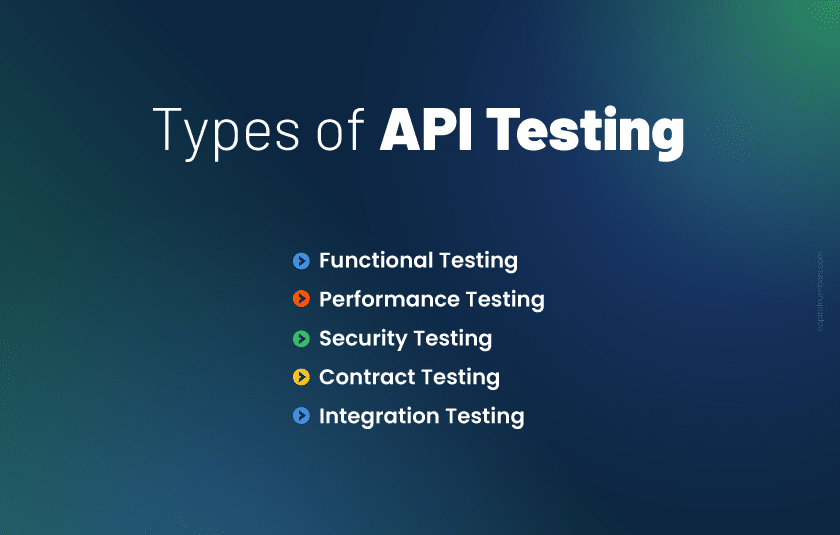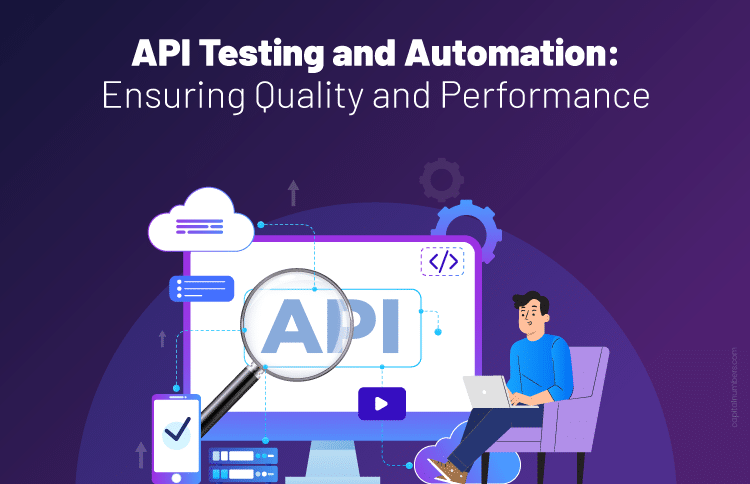API Testing and Automation: Ensuring Quality and Performance
Table of Contents
In today’s fast-paced software development landscape, APIs (Application Programming Interfaces) serve as the backbone of modern applications. They enable seamless communication between different software components, services, and third-party integrations.
As APIs become more critical, ensuring their reliability, functionality, and performance is essential. Cloud providers like AWS, Azure, and Google Cloud offer managed API solutions such as AWS API Gateway, Azure API Management, and Google Cloud Endpoints, making it easier to deploy, secure, and scale APIs.
This blog explores API testing and automation, highlighting their importance, best practices, and tools to help teams deliver high-quality APIs efficiently.
Why API Testing Matters
API testing is a type of software testing that focuses on validating the functionality, reliability, security, and performance of APIs. Unlike UI testing, which interacts with the front end, API testing works at the business logic layer, ensuring that the underlying services operate as expected.
Key Benefits of API Testing
- Early Detection of Bugs – APIs can be tested before the UI is ready, allowing teams to catch issues early in the development cycle.
- Improved Security – API tests help identify vulnerabilities such as injection attacks, improper authentication, and data exposure.
- Performance Validation – Ensures APIs can handle expected load and respond within acceptable time limits.
- Better Integration Reliability – Validates that APIs interact correctly with other services and third-party systems.
- Cost Efficiency – Automated API testing reduces manual effort and speeds up release cycles.
Types of API Testing

To ensure comprehensive API quality, different testing approaches are used:
- Functional Testing: Validates whether the API works as intended by checking:
- Request & Response – Correct HTTP status codes, data formats (JSON/XML), and error handling.
- Business Logic – Ensures APIs perform the right operations (e.g., creating, updating, or deleting records).
- Edge Cases – Tests invalid inputs, missing parameters, and boundary conditions.
- Performance Testing: Measures how the API behaves under different conditions:
- Load Testing – Evaluates performance under expected user traffic.
- Stress Testing – Determines breaking points by pushing beyond normal usage limits.
- Scalability Testing – Checks if the API can handle growth in demand.
- Security Testing: Identifies vulnerabilities such as:
- Authentication & Authorization – Ensures only authorized users can access endpoints.
- Data Encryption – Validates secure data transmission (HTTPS/TLS).
- Injection Attacks – Tests for SQL injection, XSS, and other exploits.
Cloud Consideration:- Azure API Management offers built-in OAuth 2.0 and rate-limiting.
- AWS API Gateway provides AWS WAF integration for DDoS protection.
- Contract Testing: Ensures APIs comply with predefined specifications (e.g., OpenAPI/Swagger) to avoid breaking changes.
- Integration Testing: Verifies that APIs interact correctly with other services, databases, and third-party APIs. Cloud Consideration:
- AWS API Gateway integrates with Lambda, EC2, and ECS.
- Azure API Management connects with Azure Functions and Logic Apps.
You May Also Read: A Developer’s Guide to Building a Serverless API with AWS API Gateway and Lambda
API Test Automation: Best Practices
Manual API testing is time-consuming and error-prone. Automation accelerates testing while improving accuracy and coverage. Below are key best practices for API test automation:
- Choose the Right Tools: Popular API testing tools include:
- Postman (Manual & Automated Testing)
- SoapUI (SOAP & REST API testing)
- Karate DSL (BDD-style API testing)
- JMeter (Performance & Load Testing)
- Implement CI/CD Integration: Automated API tests should run as part of Continuous Integration/Continuous Deployment (CI/CD) pipelines (e.g., Jenkins, GitHub Actions, GitLab CI). This ensures every code change is validated before deployment.
- Use Data-Driven Testing: Test APIs with multiple input combinations (valid/invalid data) using external data sources (CSV, Excel, or databases).
- Prioritize Test Coverage: Focus on:
- Critical Business Flows – High-impact API endpoints.
- Negative Testing – Invalid inputs, error responses.
- Regression Testing – Ensures new changes don’t break existing functionality.
- Monitor API Performance Continuously: Use tools like New Relic, Datadog to track API response times, error rates, and uptime in production.
Challenges in API Testing & Automation
While API automation improves efficiency, teams often face challenges:
- Dynamic API Changes – Frequent updates may break tests. Solution: Use contract testing and versioning.
- Authentication Complexity – Handling OAuth, JWT, and API keys in tests. Solution: Store secrets securely (e.g., Vault, CI/CD variables).
- Large Test Data Management – Maintaining test data for different scenarios. Solution: Use synthetic data generation tools.
- Flaky Tests – Unreliable tests due to network issues or timing. Solution: Implement retries and timeouts.
You May Also Read: How MCP is Shaping the Future of API Integration in AI Systems
Conclusion
API testing and automation are crucial for delivering high-performing, secure, and reliable APIs. By leveraging the right tools, integrating tests into CI/CD, and following best practices, teams can ensure faster releases with fewer defects.
Investing in API test automation not only improves software quality but also enhances developer productivity, reduces downtime, and boosts customer satisfaction. As APIs continue to drive digital transformation, robust testing strategies will remain a key differentiator for successful software teams.
Need Help with API Development, Integration, or Optimization?
At Capital Numbers, we provide end-to-end API development and integration services. We specialize in designing custom endpoints, connecting third-party platforms, and optimizing performance across your entire system.
Our team ensures:
- Seamless integration across tools and platforms
- Rigorous testing for reliability and speed
- Secure, scalable architecture tailored to your business needs
Whether you’re launching a new product or enhancing an existing ecosystem, we help you deliver APIs that are robust, efficient, and future-ready.
Get in touch with us today – let’s build something powerful together.


















